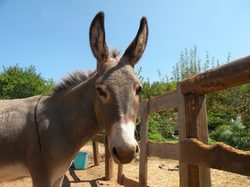 In Northern Italy, if you want to experience the rustic charm, fresh air and home grown richness of Italian food, you find an agriturismo to stay in. We stayed in two in Tuscany--one which was family owned and run and who grew and produced their own wine and olive oil. The other was a more bastadized, corporate owned affair, caharging extra for vineyard tours and tastings, with an over priced little restaurant on site and overpriced low quality "tourist wine". There are still others who are much more authentic--and where you can participate in taking care of animals, tending crops or making cheese, pasta and such. When traveling in Southern Italy the equivalent is staying in a masseria. Most masserie are very old... built between the 1500-1600s when Spain ruled the South. A masseria is a rather large farm complex to house not only the landowners, but also the peasants who tended the crops and farm animals. The complex usually included several other specialty buildings to house animals, to store crops, to make wine or cheese, etc. Some masseria developed into essentially small villages surrounded and protected high walls with a central courtyard surrounded by all the other structures. Many of the masserie today have been renovated and turned into vacation rentals and are mostly found in Puglia, in eastern Campania, on the plateau--or Murgia--of Basilicata, in Calabria, and in Sicily, Abruzzo and Molise. A masseria gives Voyagers a vacation that combines nature, local culture and home-grown (or Slow Food) cuisine with all the creature comforts of a world class vacation rental. You'll find modern plumbing, air conditioning (although often not as cool as we Americans would like it) and internet (slow or limited wireless connections due to thick walls), and satellite TV (often limited on station offerings). Some of the overly developed (in my opinion) masseria even offer spa treatments, golf courses and other offerings that have little to do with saturating yourself in local flavor or customs. I'd avoid these "resort" types and search for facilities that offer a more genuine Southern Italian experience. If you find a family run masseria you will find people go out of their way to make your stay a comfortable, memorable one. That was out experience when we stayed in a similar place, a small masseria of Trulli (pointed stone houses). Southern Italians are simply more hospitable than up in the North. There, I've said it. 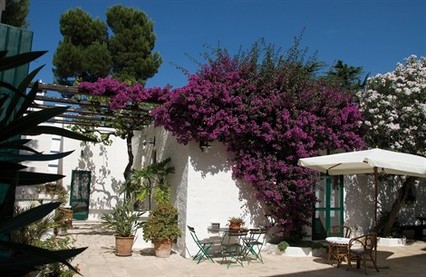 Masseria il Frantoio, Ostuni, Puglia Masseria il Frantoio, Ostuni, Puglia When staying at a masseria, you will get the feel of a farm along with a definite level of comfort found on a country estate. I think this is a great way for Southern Italians (if they are the ones who developed and run the properties) to preserve and reuse these historic structures, along with preserving this period of history in Southern Italy. If you decide to book a stay in a masseria, you will most likely be welcomed like family members, sample their own olive oil and wine and even cheese made on these farms (beware of Ricotta Forte!). You will also learn about the local culture and history--of Puglia, Basilicata or Campania. Owners will often join guests for home-cooked dinners using products from the farms... many types of pasta with vegetables, parmigiana di melanzana, seafood (the sea is all around in the South), pizza made in outdoor wood ovens, roasted vegetables, insalata caprese, polpette (meatballs) or beefsteak, home made breads (they use salt in Southern bread, unlike the Tuscan breads), thick jam-like honey, and to drink... good Southern varieties of red wine (Primativo is out favorite!). I strongly suggest looking for an organic masseria that uses no chemicals to grow their olive trees, vines, cherries, almonds, and vegetables. You will not believe how simply food can taste so damned wonderful. Imagine having a real Italian family meal—excellent, simple fare pared with a great local wine and great, hand-waving conversation. You will never have experiences like these staying in hotels. 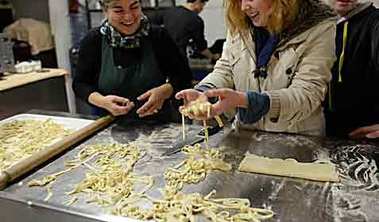 Pasta making at Masseria Panareo Pasta making at Masseria Panareo Some masseria offer classes in cheese making, pasta making, cooking or show you how olive oil is made. Visit in the fall and help with the harvest or grapes, almonds or olives. Some of the largest and oldest olive trees grow in the South... I took a photo of Lucas standing with a 2000 year old specimen! There are many masserie throughout the region and accommodation ranges from simple apartments to luxury suites and even trulli (circular stone huts), and most are in peaceful settings in the countryside surrounded by olive groves and vineyards. You usually need a car (rent in Bari or Naples) to access them and some can be difficult to find but it’s worth it for such unique accommodation and the opportunity to experience the warm hospitality of Southern Italians. If you want to stay in an organic masseria, use those words on Google... "organic masseria" and see what you come up with. The cost for a stay in a masseria stay might run from $60 to over $200 a night per person including breakfast.
--Jerry Finzi If you enjoyed this post and found it useful, please share out site with your friends. Grazie.
1 Comment
2/9/2019 04:54:22 am
Italy still maintaining its uniqueness by the all different culture and art which the citizens of Italy are still restoring every year. It is difficult to visit Italy due to less availability of visa but if you manage to go there then probably you should visit there at-least once in a lifetime.
Reply
Your comment will be posted after it is approved.
Leave a Reply. |
Categories
All
Archive
June 2024
|


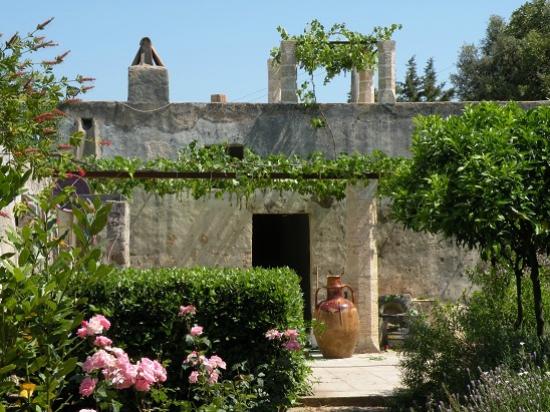
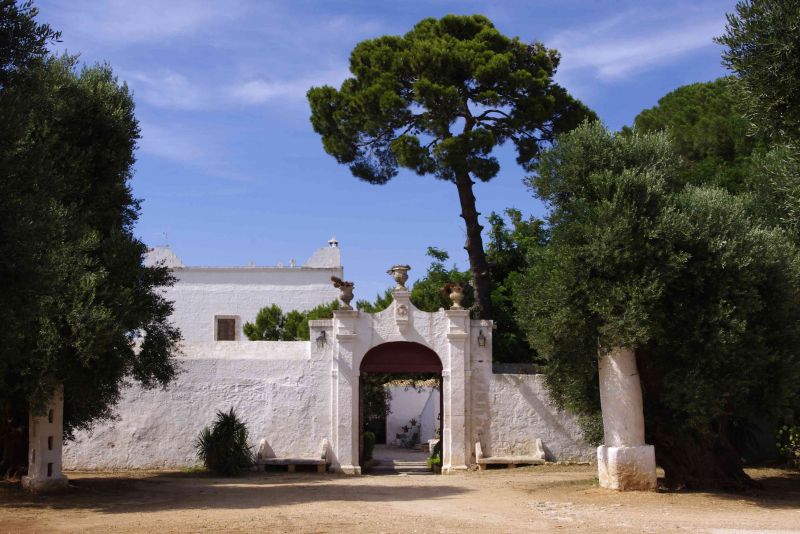
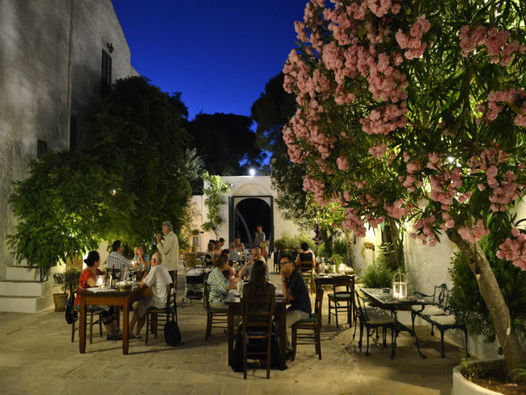
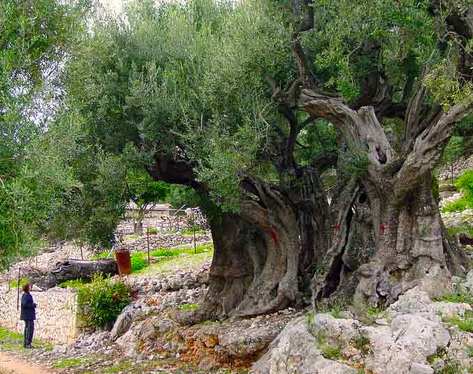
 RSS Feed
RSS Feed
